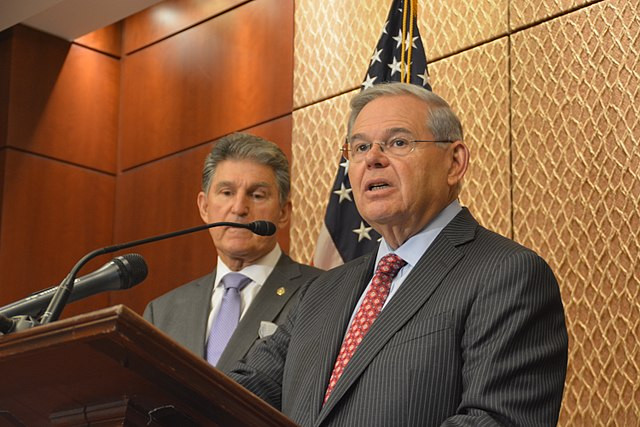Senator Bob Menendez and his wife Nadine are entangled in a sweeping investigation over allegations of accepting bribes, including gold bars and substantial cash sums, in a scheme purportedly aimed at advancing the interests of foreign governments. The New Jersey Democrat and his spouse, embroiled in accusations of acting as unregistered agents for Qatar and Egypt, have vehemently countered claims surrounding the controversial items discovered during an FBI raid on their residence.
At the heart of the case are gold bars, a "James Bond" phone, a $35,000 engagement ring, and $100,000 in cash, concealed within a pair of boots, which prosecutors argue are central to the investigation into the senator's dealings, as reported by the Daily Mail.
The Menendez couple, however, maintains that the gold bars are family heirlooms, inherited from Nadine's late mother, a narrative sharply contested by prosecutors who label it a "false cover story."
The intricacies of the case further unravel with the involvement of Fred Daibes, a New Jersey developer accused of bribing Menendez to influence a bank fraud case in his favor. The serial numbers on the gold bars seized in the raid intriguingly match those reported stolen by Daibes in a 2013 penthouse burglary, an element that could prove pivotal in the prosecution's case.
Adding to the plot, prosecutors allege that Egyptian-American businessman Wael Hana, who amassed wealth through a Halal company, also played a role in the bribery scheme, seeking favors for his business. The arrangement reportedly soured when Hana undervalued an engagement ring, initially claimed to be worth $35,000 but later appraised at $12,000, leading to a deceptive attempt to inflate its value.
Despite the mounting evidence and the gravity of the charges, which the Menendez couple and the implicated businessmen deny, the defense is poised to challenge the legality of the FBI's search of the senator's home. Menendez's legal team contends that the raid, which unearthed the contested items, was conducted with excessive zeal, violating the Fourth Amendment rights, and thus, the evidence should be deemed inadmissible.
As the case unfolds, the legal and political ramifications for Menendez, who relinquished his influential role as the head of the Senate Foreign Relations Committee following his arrest, loom large. With a trial set for May in Manhattan federal court, the senator's previous brush with the law-a 2017 federal jury deadlock on charges of corruption-casts a long shadow over the proceedings.
The unfolding narrative, replete with allegations of foreign influence, clandestine communications, and disputed heirlooms, not only challenges the integrity of a prominent political figure but also underscores the complexities of navigating the intersection of personal relationships and public duty. As the legal battle intensifies, the court's forthcoming decisions will likely have profound implications for Menendez's career and the broader discourse on ethics and accountability in public service.






